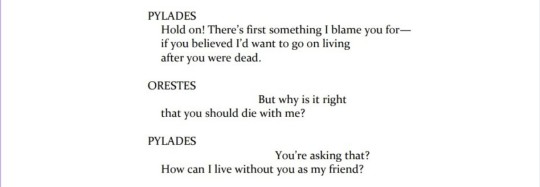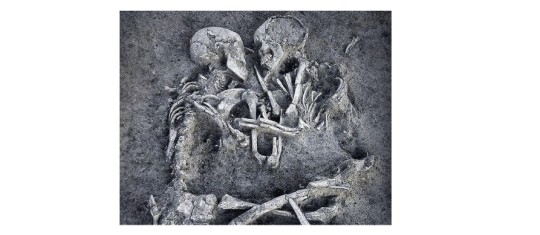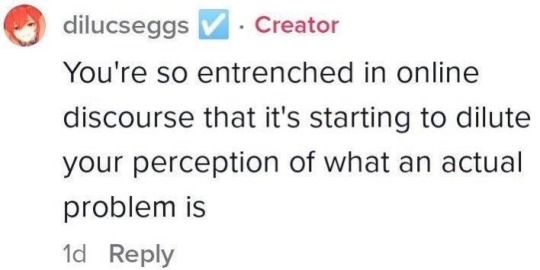DAN/DANTE | HE/SHE | 8TEENthe 21st century sapphic orpheus
Don't wanna be here? Send us removal request.
Text

It's my 8 year anniversary on Tumblr 🥳
HAPPY 8 YEARS OF UNEMPLOYMENT YAY!!!!
0 notes
Text











in the darkness, two shadows, reaching through the hopeless, heavy dusk. their hands meet.
love letter to fanny brawne, john keats // orestes, euripides // wait for me (intro) ("hey, the big artiste"), hadestown // ghost photographs - doug and brenda, angela deane // les misérables, victor hugo // achilles come down, gang of youths // how to become a myth, nikita gill // romeo and juliet, shakespeare // lovers of valdaro // song of achilles, madeline miller // i will follow you into the dark, deathcab for cutie // planet of love, richard siken
3K notes
·
View notes
Text
In the past I've shared other people's musings about the different interpretations of the myth of Orpheus and Eurydice. Namely, why Orpheus looks back at Eurydice, even though he knows it means he'll lose her forever. So many people seem to think they've found the one true explanation of the myth. But to me, the beauty of myths is that they have many possible meanings.
So I thought I would share a list of every interpretation I know, from every serious adaptation of the story and every analysis I've ever heard or read, of why Orpheus looks back.
One interpretation – advocated by Monteverdi's opera, for example – is that the backward glance represents excessive passion and a fatal lack of self-control. Orpheus loves Eurydice to such excess that he tries to defy the laws of nature by bringing her back from the dead, yet that very same passion dooms his quest fo fail, because he can't resist the temptation to look back at her.
He can also be seen as succumbing to that classic "tragic flaw" of hubris, excessive pride. Because his music and his love conquer the Underworld, it might be that he makes the mistake of thinking he's entirely above divine law, and fatally allows himself to break the one rule that Hades and Persephone set for him.
Then there are the versions where his flaw is his lack of faith, because he looks back out of doubt that Eurydice is really there. I think there are three possible interpretations of this scenario, which can each work alone or else co-exist with each other. From what I've read about Hadestown, it sounds as if it combines all three.
In one interpretation, he doubts Hades and Persephone's promise. Will they really give Eurydice back to him, or is it all a cruel trick? In this case, the message seems to be a warning to trust in the gods; if you doubt their blessings, you might lose them.
Another perspective is that he doubts Eurydice. Does she love him enough to follow him? In this case, the warning is that romantic love can't survive unless the lovers trust each other. I'm thinking of Moulin Rouge!, which is ostensibly based on the Orpheus myth, and which uses Christian's jealousy as its equivalent of Orpheus's fatal doubt and explicitly states "Where there is no trust, there is no love."
The third variation is that he doubts himself. Could his music really have the power to sway the Underworld? The message in this version would be that self-doubt can sabotage all our best efforts.
But all of the above interpretations revolve around the concept that Orpheus looks back because of a tragic flaw, which wasn't necessarily the view of Virgil, the earliest known recorder of the myth. Virgil wrote that Orpheus's backward glance was "A pardonable offense, if the spirits knew how to pardon."
In some versions, when the upper world comes into Orpheus's view, he thinks his journey is over. In this moment, he's so ecstatic and so eager to finally see Eurydice that he unthinkingly turns around an instant too soon, either just before he reaches the threshold or when he's already crossed it but Eurydice is still a few steps behind him. In this scenario, it isn't a personal flaw that makes him look back, but just a moment of passion-fueled carelessness, and the fact that it costs him Eurydice shows the pitilessness of the Underworld.
In other versions, concern for Eurydice makes him look back. Sometimes he looks back because the upward path is steep and rocky, and Eurydice is still limping from her snakebite, so he knows she must be struggling, in some versions he even hears her stumble, and he finally can't resist turning around to help her. Or more cruelly, in other versions – for example, in Gluck's opera – Eurydice doesn't know that Orpheus is forbidden to look back at her, and Orpheus is also forbidden to tell her. So she's distraught that her husband seems to be coldly ignoring her and begs him to look at her until he can't bear her anguish anymore.
These versions highlight the harshness of the Underworld's law, and Orpheus's failure to comply with it seems natural and even inevitable. The message here seems to be that death is pitiless and irreversible: a demigod hero might come close to conquering it, but through little or no fault of his own, he's bound to fail in the end.
Another interpretation I've read is that Orpheus's backward glance represents the nature of grief. We can't help but look back on our memories of our dead loved ones, even though it means feeling the pain of loss all over again.
Then there's the interpretation that Orpheus chooses his memory of Eurydice, represented by the backward glance, rather than a future with a living Eurydice. "The poet's choice," as Portrait of a Lady on Fire puts it. In this reading, Orpheus looks back because he realizes he would rather preserve his memory of their youthful, blissful love, just as it was when she died, than face a future of growing older, the difficulties of married life, and the possibility that their love will fade. That's the slightly more sympathetic version. In the version that makes Orpheus more egotistical, he prefers the idealized memory to the real woman because the memory is entirely his possession, in a way that a living wife with her own will could never be, and will never distract him from his music, but can only inspire it.
Then there are the modern feminist interpretations, also alluded to in Portrait of a Lady on Fire but seen in several female-authored adaptations of the myth too, where Eurydice provokes Orpheus into looking back because she wants to stay in the Underworld. The viewpoint kinder to Orpheus is that Eurydice also wants to preserve their love just as it was, youthful, passionate, and blissful, rather than subject it to the ravages of time and the hardships of life. The variation less sympathetic to Orpheus is that Euyridice was at peace in death, in some versions she drank from the river Lethe and doesn't even remember Orpheus, his attempt to take her back is selfish, and she prefers to be her own free woman than be bound to him forever and literally only live for his sake.
With that interpretation in mind, I'm surprised I've never read yet another variation. I can imagine a version where, as Orpheus walks up the path toward the living world, he realizes he's being selfish: Eurydice was happy and at peace in the Elysian Fields, she doesn't even remember him because she drank from Lethe, and she's only following him now because Hades and Persephone have forced her to do so. So he finally looks back out of selfless love, to let her go. Maybe I should write this retelling myself.
Are any of these interpretations – or any others – the "true" or "definitive" reason why Orpheus looks back? I don't think so at all. The fact that they all exist and can all ring true says something valuable about the nature of mythology.
26K notes
·
View notes
Text
was printing some posters for my dorm room the other day and the fellow helping me at the fedex saw my les mis and kate bush posters next to one another and went Oh! Very… Artistic!
1 note
·
View note
Text
my permanent state of guilt probably has to do with my catholic upbringing but i’ll blame it on my astrology chart in some way
1 note
·
View note
Text

forbidden yuri etc etc you know the drill
1K notes
·
View notes
Text
scared out of my mind. anyway i love you
13K notes
·
View notes
Text
Here’s a reminder that I have a website where you can read 15 obscure horror stories found in mid-1800’s literary magazines. I’m always searching for more, so check back periodically :D👍
846 notes
·
View notes
Text
my mother and i have a very rough relationship and the only thing that has helped us bond over the past week is our attraction to aaron tveit
6 notes
·
View notes
Text
ok!! last day in nyc so last theatre blurb for the trip. these just keep getting longer sorry yall
scored some last min tickets to the great gatsby on bway. i was extremely fixated on the novel for a LONG time so i was ready to go into it with a critical eye (especially as someone who listened to the soundtrack beforehand and didn’t find the writing all too swell).
but. i do have to say that i really enjoyed it!!! so jolly!! it was extremely fun and i have to agree when people say it has one of the strongest ensembles/ensemble numbers ive seen!! i also have to give props to its scenic design because MAN is it hard to make projections/screens look good imo… but they nailed it. so many cool sets and such fun transitions into each one!! i do have criticisms about the costumes not being entirely period accurate but they were still beautiful
while everyone (including myself) comes to see the lovely eva noblezada and the beautiful jeremy jordan, i HAVE to say that the standout performance was noah j ricketts as nick… and it’s CRAZY to me that people neglect to talk about it when he plays the main guy!!!! he’s so delightfully charming and silly.
i don’t think jeremy is entirely right to be gatsby but boy did he eat. it also made me laugh that he was significantly shorter than a lot of his male costars. and ofc i can’t NOT mention miss noblezada… eva was riffing for her LIFE and omfg she was beautiful.
also idk if i was grasping at straws but i DID see little glimpses of queer nick and jordan, which i will always appreciate (especially since this adaptation REALLY went crazy with making them REALLY romantically involved with each other). besides that i did think a lot of the writing was shallow, which is a little sad… but probably not as big of a deal if ur not irregular ab gatsby like i am lawl….
overall it’s a fun show :3 not as profound as i would’ve liked it to be, but i don’t regret attending at all! i would go again if i could and i do recommend
4 notes
·
View notes
Text
final girl but in a “god is keeping them alive to punish them, living after this is a fate worse than death” kind of way
2K notes
·
View notes
Text
they need to make a modern age freud who does cocaine and thinks of really crazy ideas but isn’t so obsessed with sex and misogyny. and is transgender.
612 notes
·
View notes
Text
'there are no real men anymore. men nowadays are all too feminine, they even look and act like women' where are all these feminine men. where. can you pinpoint them on a map for me. please. can you direct me to them. im begging you. please. please please please pl
56K notes
·
View notes
Text
how many of you guys are pursuing a career because of a fandom you were in be honest
0 notes
Text
sorry i’m late. had a hard time finding the “congrats on becoming the very thing you sought to destroy” section in the greeting card aisle
44K notes
·
View notes

